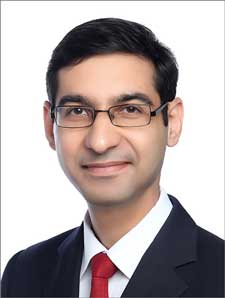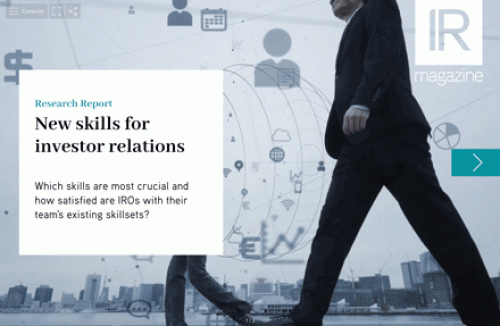Quick-fire interviews with IR professionals
Aditya Renjen is general manager of IR at Olam International, a Singapore-based supply chain and agricultural firm. Olam won awards for best use of technology and best in sector at the IR Magazine Awards – South East Asia 2013, and came seventh in the South East Asia Top 25, a regional ranking of IR teams.
 |
1. How long have you been in IR?
Since 2008, first at Glenmark Pharmaceuticals where I handled IR and corporate finance, and now at Olam International, where I’m head of IR and a member of the treasury team.
2. What did you do before joining the profession?
I started off as an auditor, then had a stint in consulting followed by a variety of corporate finance roles in the telecoms and pharmaceutical space.
3. What are your qualifications?
I have a bachelor’s degree in commerce and am a chartered accountant. I also did an MBA specializing in finance and systems.
4. How is your IR team set up?
It is a small two-member team based in Singapore.
5. Do you use external IR firms?
We do not use any IR firms.
6. How many roadshows and investor conferences do you take part in each year?
We typically participate in eight to 10 conferences that focus on the agri-commodity sector as well as regional/ASEAN conferences. We also do three to four non-deal roadshows each year across Singapore, Hong Kong, London and the US. For the coming year we are evaluating roadshows in Europe and Canada, too.
7. Do you hold investor days or analyst days?
Yes, we started holding investor days last year, and they were very well received. We also conduct site visits to some of our global operations. Last year we took a group of analysts to Nigeria and Gabon.
8. Do you use social media?
We have a corporate Twitter account, but do not use it for IR at the moment. As a first step we may start tweeting via the corporate account before starting an exclusive IR Twitter feed.
9. What’s the most popular question from investors/analysts now?
That would be: what’s the outlook for the agri-commodity sector?
10. What’s been your biggest challenge over the last year?
We have had to communicate our revised strategy to the Street, which entails a greater focus on achieving both earnings growth and sustained, positive, free cash flow generation.
11. What’s your favorite thing about doing IR?
I like that it is a mix of several roles: financial analysis, strategy and communications.
12. What’s your least favorite part of the IR role?
Probably the more mundane aspects of documentation.
13. What do you enjoy doing outside work?
Leisure time is devoted to family, Formula One and amateur theater.
14. How do you feel the role of IR is changing?
The role today demands a greater understanding of a wide variety of areas including strategy, corporate governance, technical and sector knowledge, financial acumen, communication and presentation skills, and a proactive approach.
15. If you could pass on one IR lesson, what would it be?
Hyper-communicate, particularly in bad times. If you communicate good news during the good times, going silent in bad times leads to investor uncertainty.










